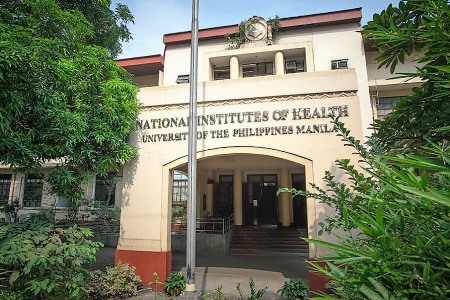The NIH Today
Vision: A recognized authority in health research and development and the key source of critical health information for national development in the Philippines and Southeast Asia.
Mission: A major resource center for health research and capacity building, using the framework of “Partnerships for Better Health”
The National Institutes of Health (NIH), University of the Philippines Manila, is the home of research units of the University of the Philippines Manila, the country’s leading health research and development institution and the Health Sciences Center of the UP System. With “Health for All” as its thrust, the NIH develops outputs that serve as vital guideposts in shaping national programs and policies.
The objectives of the NIH are: (1) to promote science and technology research and development in the field of health; (2) to promote the development of study groups and research programs; (3) to establish mechanisms for the dissemination and utilization of research outputs; (4) to complement graduate programs and faculty research human resource training in UP Manila; and (5) to ensure that the results of health research and development activities are utilized to improve the health of the people.
Since its creation, the NIH has continually made its mark in the country's health research by creating institutes and centers over the years to be the source of relevant, evidence-based health information for health policy development and socially responsive technologies for the betterment of the health of the Filipinos and the region. The name itself, National Institutes of Health, embodies the plurality of research bodies and reflects the mission-oriented, problem-directed, interdisciplinary, and transdisciplinary nature of health. As a recognized authority in health research and development, the NIH seeks to influence policymakers in enacting health laws, policies, and guidelines for health care delivery improvement; contribute to the enhancement of the knowledge and skills of health professionals; develop the capabilities of health researchers and research institutions, and lead in the formulation of the national health research agenda.

